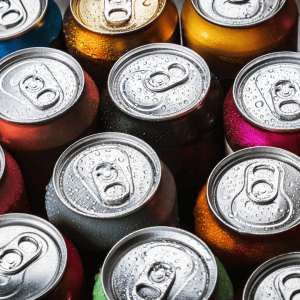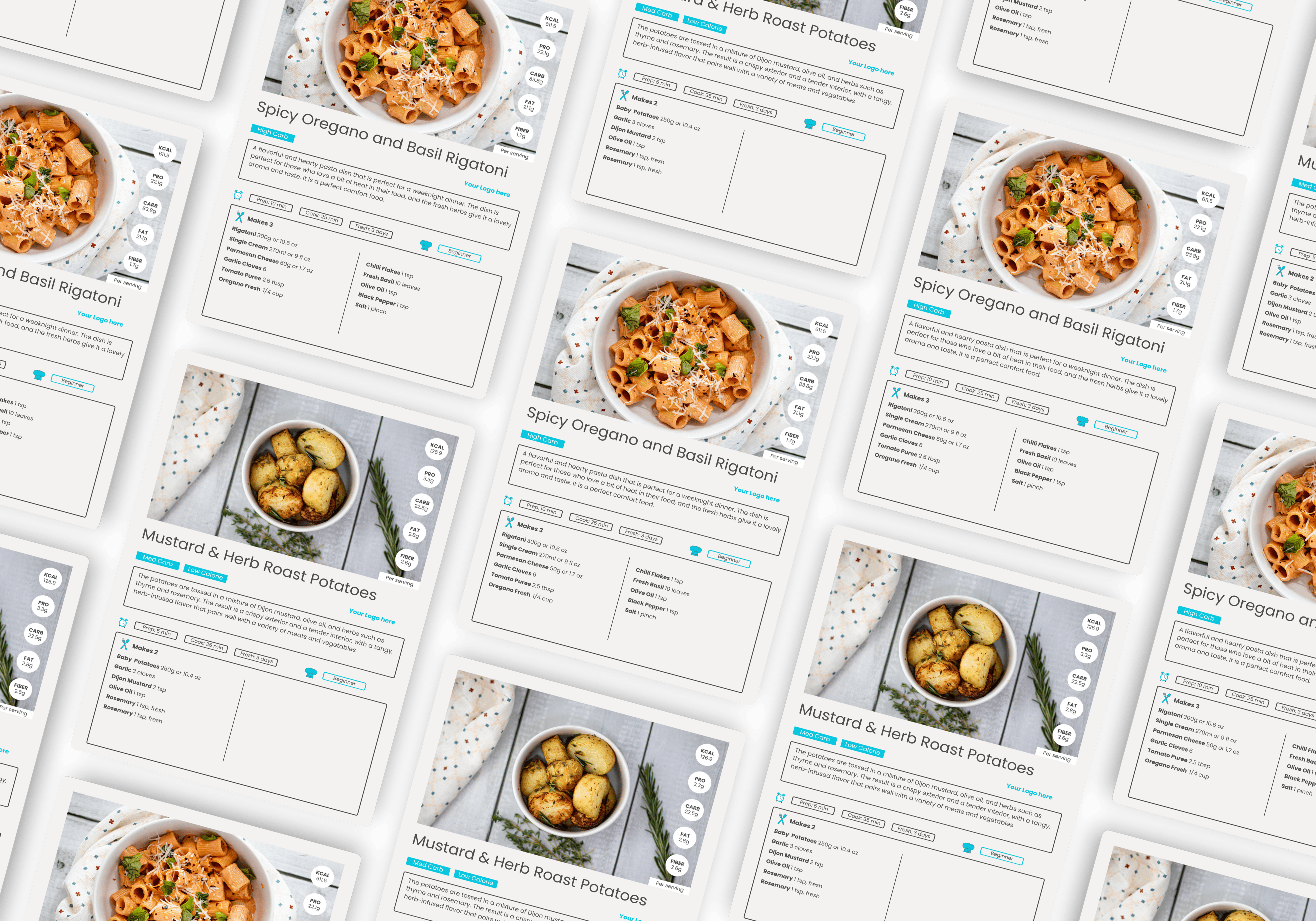The Challenge of Eating Out While Sticking to a Diet
We’ve all been there—standing at the crossroads of temptation and discipline as we scan through a restaurant menu, contemplating whether to dive into that cheesy pizza or opt for a healthier salad. Dining out is one of life’s great pleasures, but it can also be a dieter’s kryptonite. The smells, the choices, the social pressure—these elements can make it extremely challenging to stick to your dietary goals.
The question looms large: “How do you stick to your diet while enjoying a night out?” Whether you’re an athlete maintaining a strict regimen or simply someone trying to lose a couple of pounds, this blog post is designed to guide you through the labyrinth of dining out without derailing your progress. Read on for practical tips, from planning in advance to making smart alcohol choices, to ensure that your next outing is both enjoyable and in line with your dietary goals.

Planning in Advance
Knowing What You're Up For and How to Handle It
Forewarned is forearmed. Knowing the restaurant or venue you’ll be visiting can give you a significant advantage. Most places offer menus online; take a few minutes to review the options and identify the healthier choices that align with your diet. By pre-selecting your meal, you eliminate the temptation and indecision that can arise when you’re hungry and faced with a menu full of delicious distractions.
Importance of Eating and Rehydrating Before Going Out
Believe it or not, one of the best strategies for eating out while on a diet is to eat before you go out. It may sound counterintuitive, but having a small, balanced meal or snack before heading to the restaurant can be a game-changer.
Firstly, eating in advance takes care of your day’s nutritional needs, especially if you’ve had a training session or a competition. The last thing you want is to arrive at a social gathering feeling famished and throw your diet out the window.
Secondly, eating before going out can help reduce the rate of alcohol absorption if you plan to drink. This is particularly useful as alcohol is usually high in calories and can impair your judgment, making you more likely to make poor food choices. Rehydration is also key, especially if you’ve been active earlier in the day. Being well-hydrated can help you make better food choices and also help with the absorption of alcohol.
So, before you step out, consider having a light meal filled with protein and fiber or rehydrate with a non-sugary beverage. This will not only set you up for success but will also enhance your overall experience.
Pacing and Tracking
Having One Drink at a Time to Keep Track of Consumption
When you’re out and about, especially in a social setting, it’s easy to lose track of how much you’ve consumed. Whether it’s food or drinks, everything seems to flow in a festive atmosphere. That’s why it’s crucial to pace yourself. Have one drink at a time and take the time to savor it. This not only allows you to enjoy your drink more but also gives you the opportunity to keep an accurate count of how many you’ve had. Mindful drinking can help you stick to any preset limits you’ve decided on before heading out.
Spacing Alcoholic Drinks with Non-Alcoholic Ones
Another great strategy to avoid overindulging is to alternate alcoholic drinks with non-alcoholic ones. For every glass of wine or cocktail, follow it up with a glass of water, soda, or a non-alcoholic beverage of your choice. This serves a dual purpose: it helps to keep your alcohol consumption in check and also helps to keep you hydrated. Given that alcohol has a diuretic effect, staying hydrated is crucial to not only sticking to your diet but also ensuring that you don’t wake up regretting your choices the next morning.
Spacing your drinks also gives you something to do, making it easier to resist the temptation of quick, unhealthy snacks that often accompany drinks. It’s a win-win strategy that keeps you engaged while still being conscious of your dietary goals.
Low-Alcohol Choices
Opting for Low-Alcohol Beer or Diluted Spirits
When it comes to alcoholic beverages, not all options are created equal, especially concerning their alcohol content. Making a mindful choice to opt for low-alcohol beer or diluted spirits can make a significant difference in your overall calorie and alcohol intake. For example, choosing a beer with 4% alcohol by volume (ABV) over one with 7% can nearly halve your alcohol and calorie consumption for that drink. Similarly, diluting spirits with juice or soft drinks can reduce the potency of your cocktail, making it easier to keep track of your consumption without feeling overwhelmed.
The Role of Being the Designated Driver
Taking on the responsibility of being the designated driver for the night can serve as an excellent strategy to keep your alcohol consumption in check. Knowing that you’re accountable for others’ safety can offer the motivation you might need to stick to low-alcohol or non-alcoholic options. This is a double win; you’re not only ensuring everyone gets home safely, but you’re also preserving your diet and overall wellness. Plus, most places offer free non-alcoholic drinks to designated drivers, so it’s a cost-effective choice as well.
Avoiding the Pitfalls
Dangers of Rounds
Social eating or drinking often includes communal practices like rounds, where everyone takes turns buying a round of drinks for the group. While it might seem like a fun, harmless tradition, it can be a slippery slope when you’re trying to adhere to a diet or limit alcohol consumption. Rounds make it difficult to pace yourself and keep track of how much you’ve had, especially if your friends are faster drinkers or choose higher-calorie or stronger drinks than you’d prefer. It’s entirely acceptable to politely decline participation in rounds; your health goals are important, and sticking to them is something that should be respected.
Why You Shouldn't Take Unfamiliar Substances or Leave Drinks Unattended
Diet aside, personal safety should always be a priority. Consuming unfamiliar substances or leaving your drink unattended exposes you to considerable risks, including potential intoxication, poisoning, or even criminal activity such as drink spiking. Always know what you’re ingesting and keep a close eye on your drinks to ensure nothing gets added to them. This is not only crucial for sticking to your diet but also for your overall well-being and safety.
By being vigilant and aware, you can avoid these pitfalls and make smarter choices that align with your goals, without sacrificing a good time.
The Buddy System
Developing a Buddy System for Accountability
Going out doesn’t have to be a solo test of willpower against the menu and the drink specials. By developing a buddy system with a friend or a group of friends, you can build in some accountability that helps both of you stick to your diets. Choose someone who has similar health goals, so you can share low-calorie appetizers, skip dessert, or swap cocktails for seltzer without feeling awkward or deprived. Your “diet buddy” can serve as a tangible reminder of your commitment, making it easier to make good choices when you’re tempted by the more indulgent options.
Recognizing When a Friend Has Had Too Much
When you’re out with a group, especially if alcohol is involved, it’s crucial to look out for each other. If you notice that a friend or teammate is overdoing it, it’s your responsibility as a buddy to step in. This can mean anything from taking their drink away, ordering them some water, or if the situation warrants it, getting them the help they need. Not only is this a matter of safety, but it also affects the group dynamics and everyone’s enjoyment of the evening.
A buddy system isn’t just for diet accountability; it’s also a tool for collective well-being. It’s much easier to stick to your goals and navigate the challenges of eating out when you’re looking out for each other.
Importance of Rehydrating Before Bedtime
One often-overlooked aspect of going out—especially if alcohol or salty foods are involved—is the impact on your hydration levels. Alcohol is diuretic, meaning it encourages fluid loss, and salty foods can also leave you dehydrated. This is an important consideration if you want to stick to your diet and maintain optimal physical performance.
Before going to bed, make it a point to rehydrate. This helps to flush out toxins, supports metabolic processes, and prepares your body for the next day. Whether you had a few drinks or indulged in some high-sodium foods, drinking water before bed can mitigate some of the negative effects of your night out. It can also significantly improve how you feel the next day.
If you’re someone who forgets to hydrate when you’re having fun, set a reminder on your phone or make it a practice to drink a glass of water between other beverages. This is especially critical if you’re involved in sports or training, where optimal hydration is crucial for peak performance.
In essence, rehydrating before bedtime isn’t just about recovering from the night; it’s a cornerstone habit that supports your broader dietary and fitness goals.
Special Considerations for Athletes and Injured Individuals
Non-Drinking Nights for Injured Individuals
For athletes or fitness enthusiasts who are nursing an injury, a night out can carry additional risks that go beyond diet disruption. Alcohol can slow down the recovery process, worsen inflammation, and interfere with medications or treatments you may be undergoing. Given these factors, if you’re injured, you may want to designate the outing as a non-drinking night. This not only aids in quicker recovery but also helps you stick to your dietary goals without unnecessary complications.
Adjusting Your Approach Based on the Day's Training or Competition Effort
Athletes need to be particularly cautious about how they approach eating or drinking out, especially in close proximity to training days or competition events. The nutrition and hydration choices you make can significantly impact your physical performance. If you’ve had an intense training day, your body needs specific nutrients to repair muscles and restore energy levels. The same goes for pre-competition days where optimal nutrition is crucial.
Before going out, take into account the day’s physical exertion and what your body needs to recover or prepare for the next day. Tailor your choices to foods and drinks that align with these requirements. For example, if you’ve spent the day in rigorous training, focus on protein-rich foods and complex carbohydrates when eating out. Likewise, hydrate appropriately to make up for any fluids lost during the day’s activities.
Remember, social events are part and parcel of life and should be enjoyed. However, with some planning and mindful choices, you can maintain your fitness goals without forgoing the fun.
Conclusion
Navigating the social landscape while sticking to a diet can often feel like walking a tightrope. But it doesn’t have to be this challenging. With a little foresight, smart pacing, and mindful choices, you can enjoy a night out without derailing your nutritional goals. Remember, planning in advance is your best friend. Knowing how to pace yourself and what low-alcohol or healthier options are available can make a world of difference.
In the grand scheme of things, a single night out is just one part of your overall nutrition and hydration strategy. Especially for athletes or those who are recovering from injuries, the decisions you make before going out—the “pre-event meal,” so to speak—can set the tone for the entire night and even the days that follow. By eating and hydrating properly before stepping out, you’re less likely to make poor food choices or overconsume alcohol, allowing you to continue on your path to wellness and peak performance.
Ultimately, while it’s important to have fun and enjoy life’s social offerings, keeping your larger health and fitness goals in view will help you make choices you won’t regret the next day. Cheers to balanced living!



